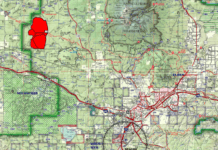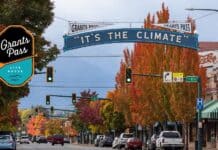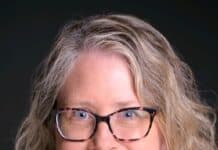
As Northern Arizona Healthcare begins its strategic plan, Sedona City Council members urged hospital leaders to consider affordable housing and increased basic care.
At their June 14 meeting, NAH representatives asked city council for their perspective on what the community needs as they begin to plan the future of the hospital. In return, council members discussed the need for workforce housing and employee retention, especially for the Sedona campus of the hospital, which is vital for the community.
“It’s your land. You can obviously do whatever you want with it,” Councilwoman Jessica Williamson said. “But the community, I think, could benefit greatly from some strategic investment [in housing] on that land.”
This discussion was in part due to NAH’s desire to partner with the cities and towns near their facilities to create common goals.
With 35 acres surrounding the Sedona campus of Verde Valley Medical Center, NAH President and CEO Flo Spyrow said that the hospital has saved the land for potential medical expansions in the future. Her team agreed that NAH was not planning to do anything other than partner with local housing groups at this time.
“I wouldn’t want the next person sitting in front of city council in 40 years saying, ‘we’ve grown to a point now where we really need more medical services but we don’t have a spot to put it,’” NAH Chief Operating Officer Josh Tinkle said.
As more medical providers leave the Verde Valley and more residents feel there is not adequate care in the area, NAH said it is still focused on its major medical expansions like the Sedona Breast Center and the Flagstaff facility, which also will provide some kind of housing option for employees when construction is complete.
“What we want to be able to do for the Verde Valley is put care close to home that you’re going to access on a really frequent basis, like primary care, urgent care, physical the r apy, l ab work, imaging,” Tinkle said. “If you’re going to go have an advanced procedure those will probably be more centralized in larger centers [like Flagstaff].”
Currently, the Verde Valley includes Verde Valley Medical Center in Cottonwood along with the Heart and Vascular Center and primary care clinics in Camp Verde, Sedona and Village of Oak Creek. Sedona is also home to the Cancer Centers of NAH.
According to NAH, retirement, relocation for family needs and terminations are the top three reasons for specialized employees leaving the company. But some council members asked if it was also due to the hospital’s policies and treatment of staff that have caused the exodus of doctors in the Verde Valley.
“I think you’re missing that you’re not taking any responsibility for these people leaving the area, you’re blaming it on circumstances and ‘the great escape’ and everything, but you’re not taking any responsibility, and therefore you can’t make any changes to improve it,” Sedona-based primary care provider Dr. Neil Singer said.
City Council initially discussed the hospital land’s possible use for housing back at their January council retreat. After hearing the city’s recommendations to look at housing solutions and ways to keep primary care in the area, NAH will come back in six to nine months to present its entire strategic plan.
“We do believe that we’re in the health care business and we’re going to look out for providing those health care needs well into the future,” Spyrow said. We know that housing is a significant issue here, and we’re willing to work with other groups that are also working on providing affordable housing.”




















